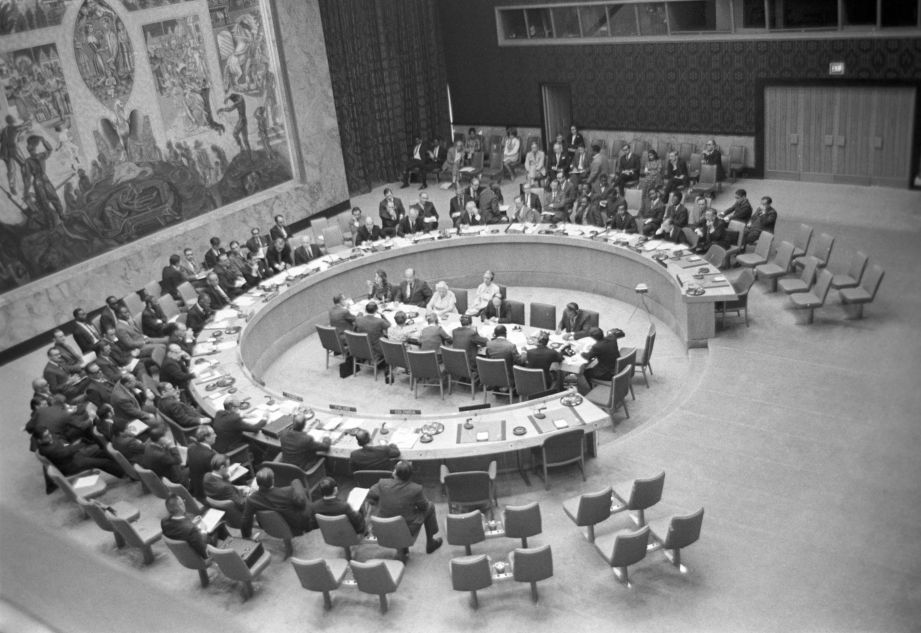On 28 August 1946, the United States vetoed Mongolia and Albania`s entry into the United Nations due to the communist orientation of both countries and the suspicion of their inability to vote on crucial issues independently of the Soviet Union.The q
uestion of the voting procedure in the Security Council of the future UN was considered at a conference of four powers - Great Britain, China, the USSR and the United States - in Dumbarton Oaks in Washington, DC, which was held from 21 August to 7 October 1944. The matter was discussed on the basis of a draft prepared by the United States, which provided for the mandatory unanimity of all permanent members of the Council when making decisions related to the maintenance of international peace and security. The United States insisted on their project and agreed to join the newly-established organisation only if the rule of unanimity of the permanent members of the Council would be established. Subsequently, the US government prepared a new version of the voting procedure in the Security Council. The project, which later received the name “The Yalta voting formula”, was considered and approved by the three powers (the US, Great Britain and the USSR) at the Yalta Conference on 4-11 February 1945.
Its provisions read: each member of the Security Council shall have one vote; decisions of the Security Council on matters of procedure shall be taken by a majority of seven votes, and decisions on other matters shall be taken by a majority of seven votes, including the concurring votes of the permanent members, while a party to a dispute shall abstain from voting. The final text of the United Nations Charter was adopted at the San Francisco Conference of 50 Allied Nations, held from 25 April to 26 June 1945. However, small countries feared that if the peace was threatened by one of the permanent members of the Security Council, the Council would not be able to take appropriate decisions.The United States actively opposed the admission not only of Albania
and Mongolia, but also of Bulgaria, Hungary and Romania as they were Soviet Union satellites, and advocated the admission of Italy and Finland. The struggle over the status of these states in the Security Council was particularly intense in September-October 1947. The peace treaties with these countries included a provision that their applications for membership in the United Nations would be supported by the great powers. The representative of Poland, with the support of the USSR, proposed at the Security Council that all these states be admitted to the United Nations. Despite the relevant provisions of the treaties and decisions of the Potsdam Conference, the representatives of the United States and Britain used all possible arguments and legal excuses, up to the veto right, against the pro-Moscow states.
Albania joined the United Nations in 1955, and Mongolia became a member of the United Nations only in 1961.
Source: Uchral N.O. International recognition of Mongolia’s independent status. “Vlast”, № 8, 2011
























